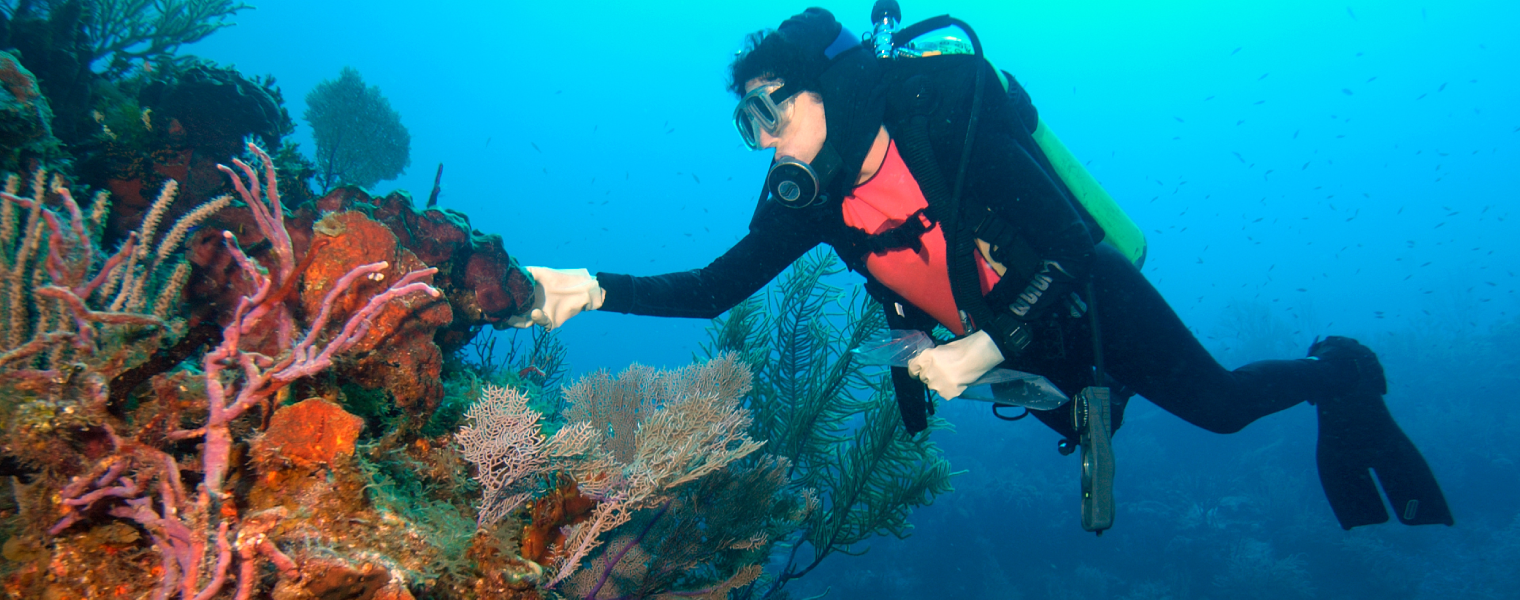06/01/2022
Florida Atlantic: A Pharmacy in the Sea
FAU Scientists Culture Marine Sponges in 3D for Human Health Applications
By Bethany Augliere
In 2019, Shirley Pomponi, Ph.D., accomplished a 30-year goal: creating the first cell line from marine sponges. She and her students have now taken that work one step further and cultured those cells in 3D, paving the way for new human therapeutics and sponge conservation.
More than 9,000 species of marine sponges exist worldwide, many of which contain promising chemical agents that may be useful in treating diseases such as cancer, COVID-19 and antibiotic-resistant Staphylococcus bacteria. But those pharmaceutically relevant natural products aren’t found in enough quantities to be economically or ecologically feasible to develop a drug. That’s part of the reason why Pomponi wanted to establish a sponge cell line.
“We are applying this technology to scale up production of spongederived chemicals with human health applications, and to establish a nursery of sponges that can be used to restock habitats in which the sponges have been killed due to extreme weather events, harmful algal blooms or impacts of climate change,” Pomponi said.
Growing the cells in 3D means they behave more like they would in a normal intact sponge, said Pomponi, senior author of the new study published in the journal Marine Drugs. Pomponi’s group chose the marine sponge Geodia neptuni for this study to demonstrate proof-of-concept of the 3D culture method.
Finding a gelatin medium to grow the sponge cells wasn’t without its challenges, she said. Marine sponges grow in salinities that are about three times greater than mammalian cells. Many of the off-the-shelf 3D substrates — called matrices — are developed for the culture of mammalian cells and will not solidify at the higher salinity. First author of the paper, Elizabeth Urban- Gedamke, one of Pomponi’s former graduate students and now research technician, had to modify how she made the gelatin, which was instrumental in the progress of the research.
Once it worked, “I wasn’t surprised, but I was happy,” she said. “I knew that once we got the cells to divide, it was just an issue of selecting the most appropriate 3D matrix.”
For lifelong work like this, Pomponi has one message: “Do not give up, especially if you’re making incremental improvements, and surround yourself with students and staff who think out of the box and will propose different approaches.”
If you would like more information, please contact us at dorcommunications@fau.edu.

"A Pharmacy in the Sea" comes from the Florida Atlantic Magazine. View stories like this and more at www.fau.edu/newsdesk/magazine.
